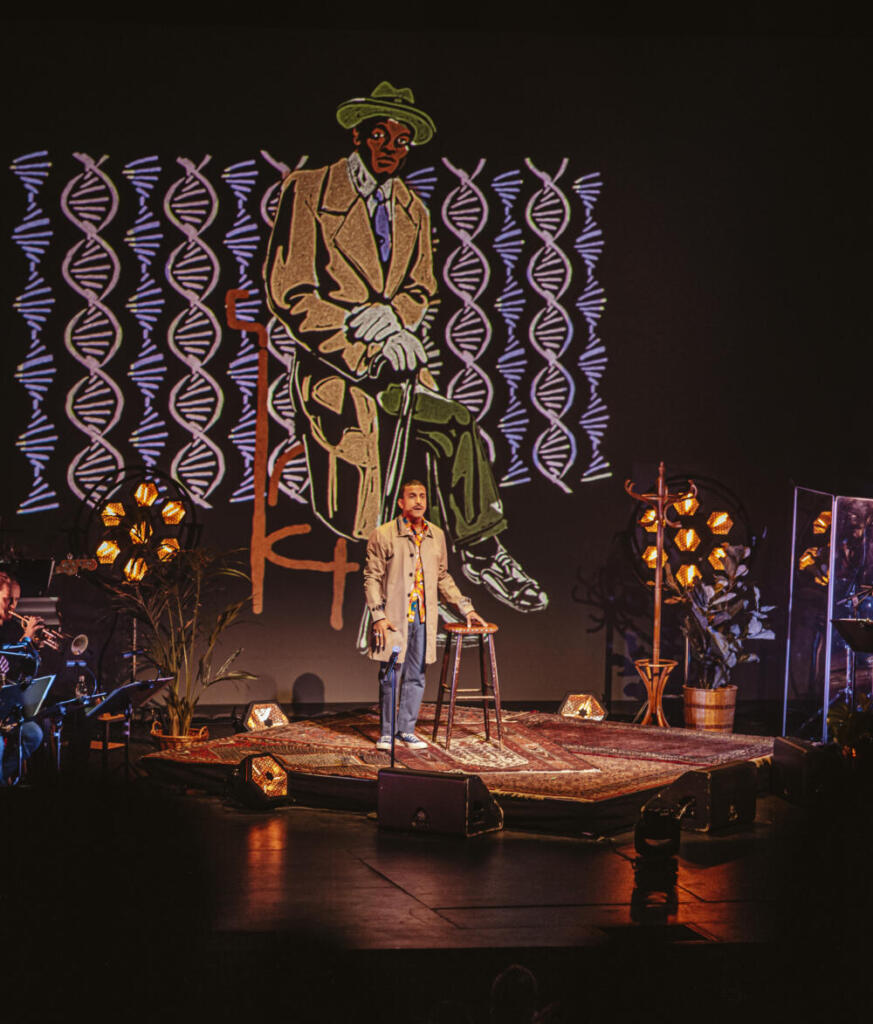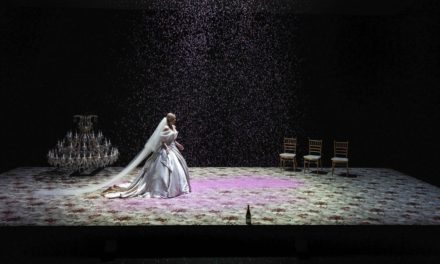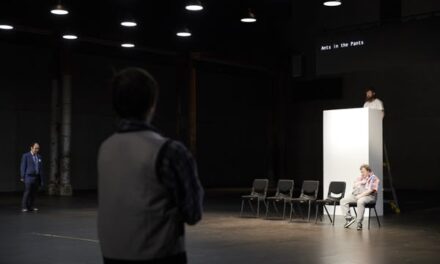There is a palpable sense of world-class musicianship as the ensemble of six instrumentalists and two backing vocalists take to the stage to set the scene for Jason Timbuktu Diakité’s evening of musical storytelling. Their performance in Malmö’s Slagthuset (Slaughterhouse) is the last leg of their Swedish tour following a New York run back in June, and this promises to be a high note finale.
Timbuktu, Sweden’s multiple Grammy-winning hip hop/soul artist, was born in Lund, a university town where his parents, originally from the United States, settled in the 1970s in order to escape racial prejudice for being a mixed-race couple. In 2016, Timbuktu published his autobiography, A Drop of Midnight, which explored the complexity of his family history and his ethnic roots and went on to sell 60,000 copies in its English translation. In researching the book, he retraced the footsteps of his ancestors on his father’s side back to South Carolina where his great-grandfather had worked in the cotton fields, and to New York where his paternal grandmother joined the Civil Rights movement, having divorced her first husband in order to study at Columbia University, and having sent her three children to Nigeria to erase traces of slavery from their soul. Mr. Diakté senior had quite understandably declined the invitation to accompany his son on that journey of discovery, but he features in the story prominently as a constant source of love and wisdom. The fact that the final performances of this tour are in Malmö, where the father now lives, does not seem entirely incidental as part of this journey.

PC: Oskar Sandström
Jason delivers his formidable family story of dignified resistance – a ‘secret sauce of suffering, survival and faith’ as he poetically puts it – with unexpected levels glee. Yes, he calls out the racism loud and clear and is no less forgiving for the Swedish variety of it couched as it is in sleepy ignorance, but he is also aware that he is his ‘ancestors’ wildest dream’. He lives in a country where Obamacare is not needed and education is free for all, but that aside, he is a gifted writer and a performer blessed with warmth and charisma, as well as catchy dance moves when needed.
Although most of Timbuktu’s hip hop is normally performed in Swedish, this transatlantic collaboration is delivered mostly in his other main language, English – with a few small moments exceptionally rendered in Swedish perhaps for the local tour. The original production directed by Farbaz Arbabi and adapted by Eva-Maria Dahlin with scenography by Jenny Kronberg was re-directed by Jonathan McCrory for Harlem in June, but both iterations seem to have a distinctly vibrant look, enhanced by colourful illustrations that illuminate the backdrop.
Despite the notable creative efforts aimed at visual stage presentation, this is definitely a music gig more than a theatre piece, and rightly so, being graced as it is by some truly exceptional musical talent. The stage version of A Drop of Midnight was, as Timbuktu informs us, the idea of Rakiem Walker, Harlem-based saxophonist and jazz band leader who also musically directed the piece. The score itself was written by Timbuktu’s other long-term collaborator, Swedish pianist and composer Erik Hjärpe. This makes for a dream team. Hjärpe is no stranger to theatre and his music is suitably discreet, capacious and quietly atmospheric to carry all the verbal content and fully showcase the ensemble. Walker is excellent both as a musician and occasional actor. The stage is also graced by keyboard-player Gemaal Brown, bass-player Criston Oates, trumpet-player Benjamin Seacrist, drummer Donald James Jr. and powerful vocalists DR King and Gloria Burns. The Malmö gig crowns the end of A Drop of Midnight’s 2022 tour, but to end the show here would certainly be a loss to the world of theatre too.
This post was written by the author in their personal capacity.The opinions expressed in this article are the author’s own and do not reflect the view of The Theatre Times, their staff or collaborators.
This post was written by Duška Radosavljević.
The views expressed here belong to the author and do not necessarily reflect our views and opinions.


















